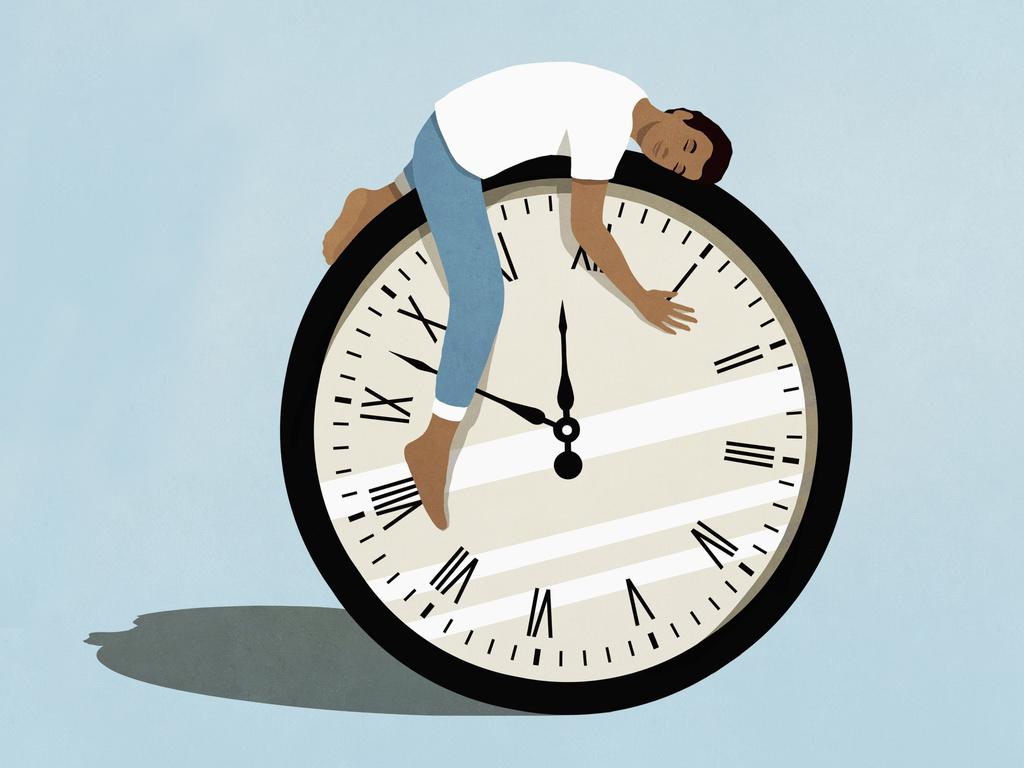Food to beat anxiety – what psychiatrists eat
It’s hard to escape the suggestion that we are more anxious than ever. How diet can ease stress and fight depression.
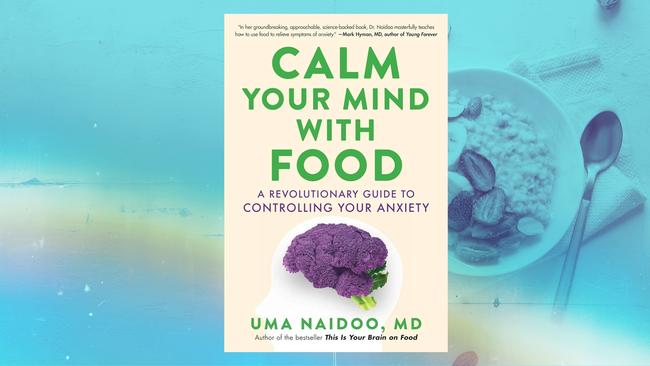
It’s hard to escape the suggestion that we are more anxious than ever. According to a 2023 poll of 6,000 adults by Mental Health UK, one in five UK adults admitted feeling anxious most or all of the time, and almost three quarters said they had felt anxious at least sometimes in the previous two weeks. But what if we could fight anxiety with what we put on our plates?
In her new book, Calm Your Mind with Food, the Harvard-trained psychiatrist Dr Uma Naidoo, the director of nutritional and metabolic psychiatry at Massachusetts General Hospital, explains that what we eat can have a profound effect on our anxiety levels, banish feelings of tension, and elevate our mood for good.
“We are such a weight-driven culture that when people think about food it’s usually about the effect of it on the number on the scales, the waistline,” she says. “Nobody tends to think that what they eat affects their mental health, but food really can make you emotionally better.”
Having spent decades diagnosing anxiety in others, Naidoo recognised the signs when she felt them herself; first when she was diagnosed with breast cancer and, paradoxically, when her last book, This is Your Brain on Food, became a bestseller in the US in 2020 and she felt “huge panic” about working out what to do next. “Food helped me ease my anxiety and supported my medical treatment, which provided the blueprint of my work today (Saturday),” she says.
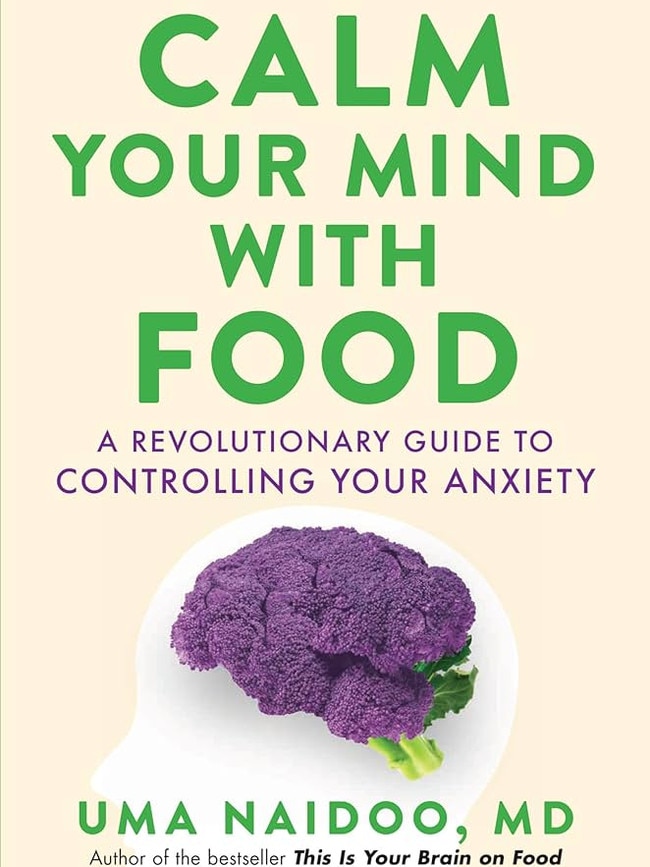
Anyone who has experienced anxiety will tell you that the symptoms include fatigue and irritability, a rapid heart rate and racing thoughts, sweaty palms, and feelings of dread or “pit of the stomach” nausea that can leave you struggling to face what lies ahead. As if not bad enough in itself, anxiety also raises the risk of other conditions, including type 2 diabetes, heart disease and Alzheimer’s disease.
“There are a lot of links and crossovers,” Naido says. “Chronic inflammation and gut problems are known to contribute to anxiety, but anxiety can also make these physical conditions worse too.” And the more anxious you feel, the worse the outcome becomes. “I see a lot of patients who get caught in a downward spiral with anxiety, from children and university students to people in their eighties,” she says. “It is more widespread than it has ever been.”
While anxiety might seem – and sometimes feel – similar to stress, there are distinct differences. “Stress tends to dissipate when the trigger is removed, whereas anxiety is fuelled by the anticipation and worry of what might happen in the future,” Naidoo says. In other words, the more we worry and the more we have to worry about, the more anxious we become. Genetics, our unique neurochemistry and our personality traits all contribute to our susceptibility to it, but so can too little sleep or exercise, substance abuse, loneliness – and, of course, what we eat or don’t eat.
Scientists now understand much more about what Naidoo describes as “the bio-directional relationship between the gut and the brain”. Anxiety in the mind often begins in the gut, she says. “One of the things I see a lot of in my practice is changes in diet coinciding with changes in anxiety levels. When we are eating a highly processed diet with a lot of fast foods, the breakdown products are toxic to the gut environment and start to set up inflammation that impacts mental and physical health.”
On the flip side, the more we consume nutrients and food that fight inflammation, the better we become at handling our anxiety. “We should see food as an additional tool in the anxiety toolbox, something that helps anyone with anxiety and also works alongside any medication a doctor might be prescribing for the condition,” she says. “Food is the area you can start tweaking that same day and it will begin to have benefits immediately.”
Here’s how to eat your way to a calmer mind:
1. Have more yoghurt
Scientists are increasingly understanding how our gut microbiome, the trillions of bacteria and yeasts in the gut that perform important functions in the body, helps to regulate brain function through what is called the “gut-brain axis”. “Eating foods that are gut-friendly is beneficial for the brain,” Naidoo says. “And there’s some evidence showing that yoghurt actually helps stress and anxiety.” In a review of 21 published studies involving 1,503 people, researchers reporting in General Psychiatry journal suggested that plain yoghurt is one of the foods that helps to reduce anxiety by improving the gut health.
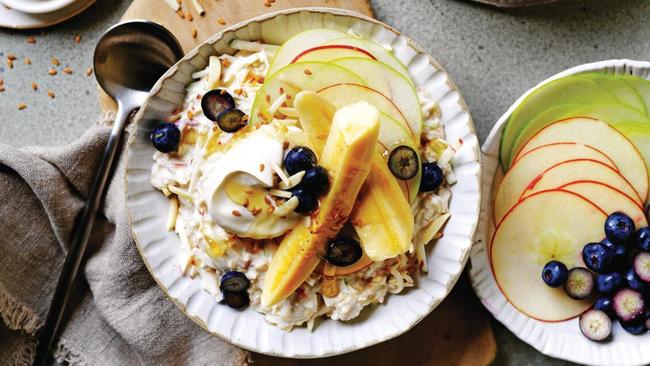
2. Eat vitamin B-rich oats, milk and chicken
“The B vitamins should be on the radar of anyone prone to anxiety as nearly all of them are important in its prevention,” Naidoo says. “Lots of nutritious and readily available foods supply these important nutrients and a range of the B vitamin group often appear together in wholegrains, leafy green vegetables, nuts, seeds, lean red meat, poultry and fish.”
Recent studies, including one in the Journal of Affective Disorders, have shown that even a moderately high intake of B vitamins from eating a few of the foods mentioned above every day leads to lower levels of anxiety.
If you don’t eat meat, fish or dairy, you may need a supplement, particularly if you are diagnosed with a deficiency, Naidoo says. Researchers at the University of Reading discovered that a supplement of vitamin B6, also present in oats, milk, avocados and chicken, brought considerable benefits for people with anxiety, including raising levels of GABA (gamma-aminobutyric acid), a chemical that blocks impulses between nerve cells in the brain and is linked to a reduction in anxiety. However, their study, published in Human Psychopharmacology journal, found that supplements of vitamin B12 capsules were no better than a placebo at boosting the mood of participants. “It’s really important to get enough of them from your diet,” Naidoo says. Marmite, a yeast extract rich in B vitamins, is another good option.
3. Drink 2-3 cups of tea a day (builder’s is fine)
“People with anxiety can be dehydrated and not drinking enough of anything, which makes the symptoms worse,” Naidoo says. “Calming teas are great, but so too are regular black and green teas, which contain polyphenols that can help relieve anxiety.” The key polyphenols in black tea are theaflavins, and in an animal study published in the journal Bioscience, Biotechnology and Biochemistry, these theaflavins were shown to reduce anxiety levels possibly by increasing the brain’s production of dopamine, a mood-boosting hormone. Naidoo says that some studies, including one in the Journal of Physiological Anthropology, have shown the effects can be so powerful that “just inhaling the aroma of black tea” can reduce stress and anxiety.
High levels of caffeine can lead to an increase in anxiety symptoms, so Naidoo recommends keeping consumption to under 400mg/day. “One cup of black tea contains about 47mg of caffeine, and one cup of green tea contains about 28mg, so it’s unlikely that you’d exceed the limit while drinking only tea. But be careful if you’re also drinking coffee,” she says. A cappuccino bought from Costa Coffee, for example, can have as much as 325mg in it.
4. Pack in plenty of pickles, garlic and bananas
Eating plenty of gut-friendly foods is essential for warding off anxiety. “One of the key roles of your gut microbiome is to help your body produce neurotransmitters, chemicals such as serotonin, dopamine, and GABA that carry messages between nerve cells,” Naidoo says. “These neurotransmitters are important for a range of body functions and imbalances in them are a factor in depression and anxiety.” Results of a 2019 review from the Shanghai Mental Health Centre at Shanghai Jiao Tong University School of Medicine in Japan found that more than half of the 21 studies researchers reviewed showed that probiotic supplements or foods that helped to regulate intestinal health also had a positive effect on anxiety levels. “Probiotic fermented foods like pickles and kimchi, as well as prebiotics like garlic, onions and bananas, are particularly beneficial,” Naidoo says.
“And research has consistently shown that a probiotic supplement designed to boost beneficial bacteria levels in the gut will have less impact on lowering anxiety levels than real food.”
5. Have berries for breakfast
Berries are brilliant brain boosters and can have a powerful effect on lowering anxiety levels if consumed regularly. “Darker berries, such as blueberries, blackcurrants and blackberries in particular, are rich in antioxidants that protect the brain against oxidative stress,” Naidoo says. “There’s plenty of research confirming that berries can protect against neurodegenerative diseases such as Alzheimer’s, and the same neuroprotective effects do seem to improve anxiety for many people.” A study from the University of Otago, published in Frontiers in Psychology journal, showed that a good intake of fresh fruits, including berries, is linked to reduced anxiety symptoms.
6. Consider taking an ashwagandha supplement
“You can’t supplement your way out of a poor diet,” Naidoo says, “but there are some supplements that people might find helpful for their anxiety.” Ashwagandha is one she recommends trying. An Indian herbal supplement, it is derived from a bitter tasting but brightly coloured flowering bush. It is widely used in ayurvedic medicine and is said to reduce stress, possibly by lowering levels of hormones such as cortisol. A review of 12 clinical trials involving 1,002 people aged 25 to 48 published in the journal Phytotherapy Research reported that “ashwagandha supplementation significantly reduced anxiety” when 300-600mg a day was taken, although most of the studies included were small. “It’s a supplement I have tried myself,” Naidoo says. “There are a few decent trials showing it can help so it might be worth a shot for some people.”
7. Yes, you can have a glass of red wine
Alcohol is a known depressant that disrupts the delicate balance of neurotransmitters in the brain. “Too much alcohol can cause anxiety to get worse,” Naidoo says. “However, the polyphenol resveratrol which is present in red wine can help to regulate the release of neurotransmitters like serotonin and dopamine that calm the brain, so an occasional glass is OK for some people.” Red wine isn’t the only source of resveratrol; red grape juice has good amounts too, as do blueberries, raspberries, peanuts and pistachios.

8. Don’t reach for sugary, high-fat comfort foods
Some people don’t feel like consuming any food when they are anxious, but others use food to comfort and soothe themselves when tension starts to rise. If you fall into the latter group, it’s more likely that you will reach for high-calorie, fatty and sugar-laden foods than carrot and celery sticks – and with reason. Studies, including a 2022 paper in the journal Appetite, prove that comfort foods really do provide a short-term improvement in mood during emotionally testing times. But those effects don’t last long and will likely backfire. “Levels of leptin, a hormone that signals to the brain when you’ve had enough to eat, are reduced when we are anxious and stressed, which means we struggle to know when we have had enough to eat,” Naidoo says. “And when leptin levels are reduced there is also a proven urge to eat more comfort food.” The upshot is a cycle of reaching for biscuits, crisps and cakes that will make you feel worse, not better, in the long term.
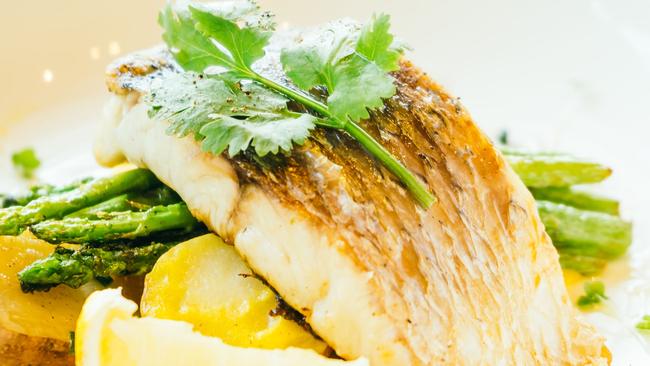
9. Eat more nuts, seeds and oily fish
“Food sources of omega-3 fatty acids, including oily fish, nuts and seeds, are helpful for the brain and for mental health,” Naidoo says. “These important fatty acids are known to have anti-inflammatory effects that are important in protecting the brain, but there’s increasing evidence that they also have a direct effect on reducing anxiety when we include them in our diets.” A 2018 paper in JAMA Network Open showed that omega-3 fatty acids helped to reduce anxiety symptoms, while a 2022 study in the journal Frontiers in Nutrition showed a supplement of omega-3 alleviating anxiety in people with depression. “Supplements are an option as they provide a standard amount of the omega-3 fatty acids,” Naidoo says. “But many researchers have shown that omega-3 fatty acids from food work better than those from a pill, so it is also my preferred option to get them from oily fish and other foods.”
The Times




